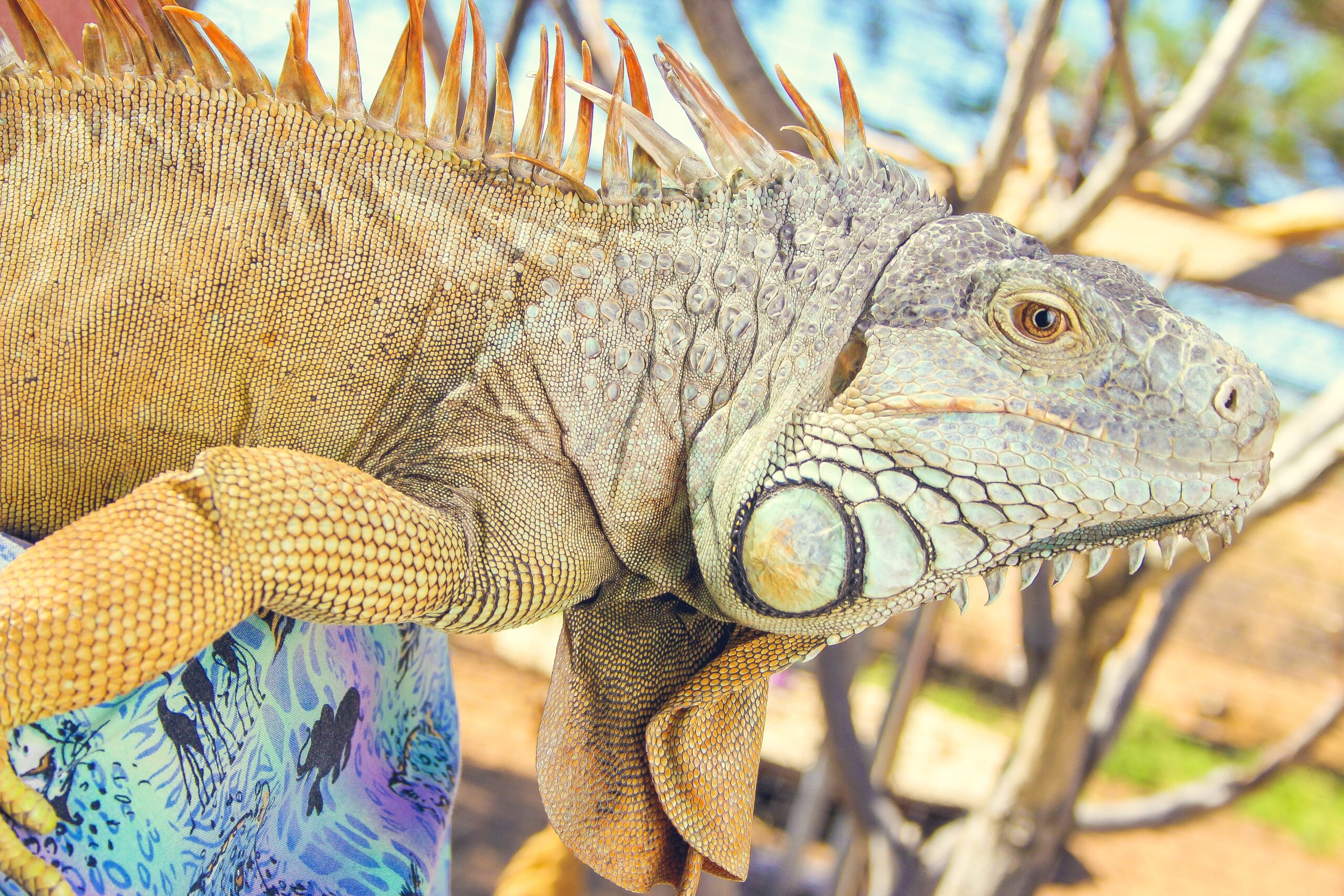When choosing accessories for your reptile’s terrarium, here are 6 things to consider:

Pet owners don’t typically think about safety when providing care for a reptile. Most reptiles are fairly low maintenance when compared to a dog or a cat. But truth be told, safety is just as important in reptile care as it is the care of any other pet.
Reptiles spend most if not all their time in a terrarium, and good reptile keepers strive to make that terrarium as comfortable and natural as they possibly can. Heating elements, lights, rocks and plants are all accessories that are vital to a good terrarium yet can also be potential hazards to reptiles.
When choosing accessories for your reptile’s terrarium, consider the following:
#1 Safe Terrarium Decor:
Choose decorations, such as rocks and plants, that have only smooth surfaces. Your reptile may cut or scrape himself on a sharp surface.
#2 Wash Plants
If you use live plants to decorate your terrarium, research them to make sure they aren’t poisonous to animals. Wash them thoroughly with water before planting them in your terrarium. This will remove pesticides, which can harm your reptile.
#3 Safe Heating Elements
Avoid using hot rocks as heating elements. These heat sources can become too hot and burn your reptile. Under the glass heat pads are safer.
#4 Pick the Right Bedding
Use the right substrate for your pet. Different species of reptiles require different types of bedding. Research the needs of your particular reptile to make sure you are giving him the right substrate, and stick to commercially sold types. These are safer for reptiles than sand, wood chips or other material gathered outdoors.
#5 Avoid Live Prey
If you have a reptile that eats crickets, don’t leave them in your pet’s enclosure for too long. Crickets can harm your reptile by biting your reptile’s skin and eyes. Give your reptile only two or three crickets at a time, and don’t give him more until he eats them. After an hour, remove any crickets he hasn’t eaten.
#5 Cricket Watch
If you have a reptile that eats crickets, don’t leave them in your pet’s enclosure for too long. Crickets can harm your reptile by biting your reptile’s skin and eyes. Give your reptile only two or three crickets at a time, and don’t give him more until he eats them. After an hour, remove any crickets he hasn’t eaten.
If your reptile does become injured with a wound, cut, minor burn or abrasion, apply Vetericyn® Plus Reptile Wound and Skin Care. Once you’ve treated your pet, find out what caused the injury. If a rough surface on something in the terrarium was the culprit, remove the object right away.
If your reptile’s injury doesn’t start to look better by the next day—it is swollen or begins to look infected—contact an exotics veterinarian right away. Your reptile relies on you to keep him happy and healthy. Be sure his terrarium is safe and free from trouble.
Reptile Testimonial:
We had a young lady come into our store with a Blue Tongue Skink with its hempipenis hanging out of its body and he was badly burned. Immediately, I treated it with Vetericyn and started to see results within the first week of treatment. It eventually fell off and the wound completely healed. Vetericyn is great for reptiles. I truly believe this is a product that can save pet parents from paying high bills at a veterinarian office.
Learn more about our exotic animal products here.
 Dr. Melinda J. Mayfield-Davis, DVM, WCHP-AH, brings over 20 years of experience in veterinary medicine. She is the Technical Services Veterinarian with Innovacyn, Inc., parent company of Vetericyn Animal Wellness. She received her DVM from Oklahoma State University and now resides in Southeast Kansas with her husband, two children, four dogs, and six horses. Prior to working with Innovacyn, Dr. Mayfield owned and operated the Animal Care Center in Columbus, KS.
Dr. Melinda J. Mayfield-Davis, DVM, WCHP-AH, brings over 20 years of experience in veterinary medicine. She is the Technical Services Veterinarian with Innovacyn, Inc., parent company of Vetericyn Animal Wellness. She received her DVM from Oklahoma State University and now resides in Southeast Kansas with her husband, two children, four dogs, and six horses. Prior to working with Innovacyn, Dr. Mayfield owned and operated the Animal Care Center in Columbus, KS.


